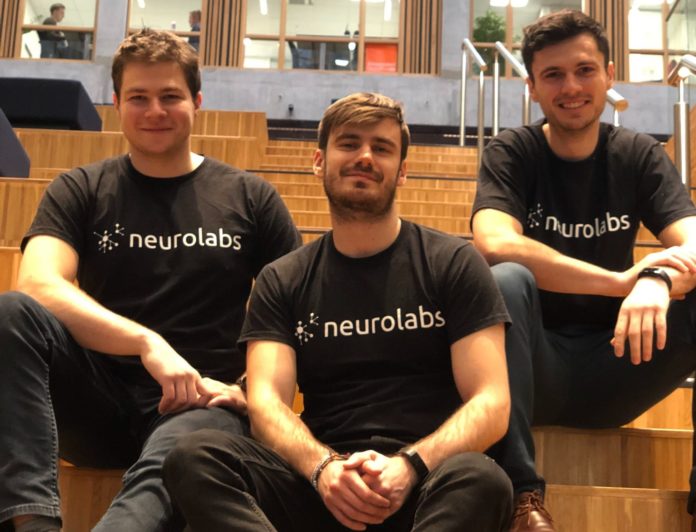According to UN statistics, roughly 30% of global production is lost or wasted annually – or approximately 1.6 billon tons. The problem is expected to deepen; a recent report predicts if no urgent action is taken to reduce food waste, by 2030 the world will waste 66 tons of food every second. At the same time, 795 million people worldwide don’t have enough food to lead a healthy and active life.
Several startups have emerged recently to address the world’s waste problems. Neurolabs, a startup from Cluj-Napoca, Romania, is one of them.
Just founded in 2018, the startup has developed software to help supermarkets reduce waste, by using AI algorithms to make better sales predictions and optimise their orders and inventory – thereby addressing the problem before it occurs. With precise forecasting, Neurolabs provides retailers with all the tools they need to prevent overstocking.
Ultra-fresh and perishable products that do not sell in high volume are often those that end up in the dumpster, and so the benefits of better optimisation are primarily seen in these items. Depending on the product range, Neurolabs’ solution can reduce up to 40% of supermarkets’ waste.
So far, data from a chain of 80 supermarkets in Portugal has been used to validate Neurolabs’ algorithm, and the solution is currently implemented for testing in a supermarket in Romania. Depending on the results from the current testing phase, the startup plans to move from pilot to market in the Autumn of 2019.
The company has its research and development center in Cluj-Napoca, Romania, the capital of Transylvania and a city known for its coding talent, while its operational office is based in London.
Compared to other waste reduction solutions, Neurolabs is focused on the accuracy of the predictions – doing intraday product predictions for high volume products, and helping to catch trends for lunch and dinner, for example.
By connecting to the resource management systems of chain stores, Neurolabs’ platform extracts relevant data such as sales history and product descriptions, and uses this data to generate a detailed analysis of customer habits, as well as accurate predictions of sales volume on individual products. Compared to similar solutions on the market, Neurolabs takes into account additional variables, such as weather conditions, which are an important factor in estimating sales.
“If it’s warm, there will be more sales of ice cream, beer and burgers,” said Paul Pop, one of the co-founders of Neurolabs. “There are a handful of companies that make sales predictions based on the weather, but we went further and took a number of other external factors into account, such as the competitors’ price and promotion, store density, local economic data etc.
“Furthermore, we monitor the on-shelf availability of products. Using video cameras installed by us, we track the stock of products on the shelf, and when the stock is low, we send notifications to the store staff to refresh the stock.
“In a nutshell, we make sales predictions on individual products, track sales and suggest relevant promotions at the right time. On the shelf we constantly monitor the stock to ensure sales continuity.”
Neurolabs’ software integrates with existing inventory systems using a microservice type architecture, which runs independently of clients’ infrastructure. The data is taken over by APIs from client systems (such as SAP, Meti, Oracle) and the results of the predictions are put back into the same database. The solution can be easily extended to other retailers who use similar databases.
In the Primer by InnoEnergy demo organised in Cluj at the beginning of this year, of the nine startups that were invited to pitch, Neurolabs was chosen as the winner and came to the attention of InnoEnergy for funding opportunities up to €150k. So far, Neurolabs has received two EU grants through the FTMO accelerator.
Now, Neurolabs will go through the Fast Track Malmo accelerator in Sweden, where for four months the team will learn more about how to scale their company, how to better position their product on the market, and how to attract customers and investors from Nordic countries.
In the near future, Neurolabs plans to focus on the development of the image processing solution for on-shelf availability by partnering with hardware providers.
By the way: If you’re interested to join a fast-growing startup like Neurolabs, make sure to check out the EU-Startups Job Board.




